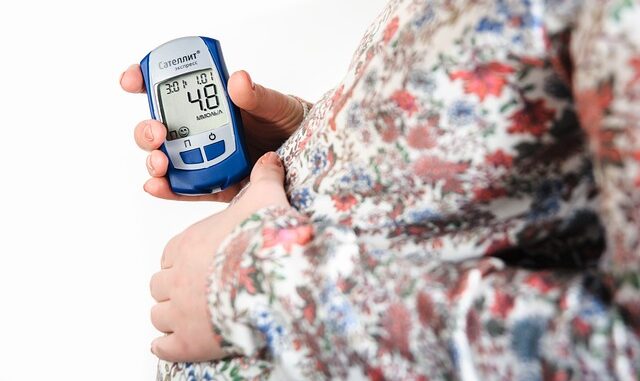
Summary
GLP-1 receptor agonists like semaglutide and tirzepatide are rapidly replacing older medications for type 2 diabetes and weight loss. This shift reflects new evidence, increased awareness of obesity treatment, and evolving management guidelines. The trend towards newer medications offers potential benefits but also raises considerations about cost and long-term effects.
Healthcare data growth can be overwhelming scale effortlessly with TrueNAS by Esdebe.
** Main Story**
Okay, let’s talk about the buzz in weight loss and diabetes management – things are changing fast! That Mass General Brigham study, you know the one in Annals of Internal Medicine, really lays it out. They crunched data from almost two million people between 2021 and 2023, and guess what? GLP-1RAs, like semaglutide and tirzepatide, are skyrocketing in popularity.
And, as you’d expect, the old guard – metformin, sulfonylureas, insulin – are seeing less use. It’s not hard to see why. We’ve got new data showing how well GLP-1RAs work, a bigger focus on treating obesity, and updated guidelines. Plus, who wouldn’t want a drug that can help manage blood sugar and weight, all in one? This isn’t your grandmother’s diabetes treatment anymore.
GLP-1RAs Stealing the Show
So, these GLP-1RAs (Ozempic, Rybelsus, Wegovy, Mounjaro, Zepbound – the list goes on!) mimic a natural hormone. It helps your body regulate blood sugar and keep your appetite in check. Pretty neat, huh? And they’re really effective, helping control blood sugar and promote weight loss. The Mass General Brigham study found that, by the end of 2023, more than a third of new diabetes meds were GLP-1RAs. That’s huge!
For people without diabetes looking to lose weight? Brace yourself, that number jumped to almost 90%! Tirzepatide was the most popular choice. It’s mostly because they control glucose and reduce weight. Older diabetes treatments sometimes caused weight gain, but GLP-1RAs tackles both problems at the same time, now that’s efficiency.
I remember, actually, a colleague telling me his doctor switched him to Ozempic, and it’s made a world of difference. He’s lost weight and his blood sugar is better controlled. It’s anecdotal, sure, but it speaks to the real-world impact these drugs are having.
What Else is Cooking in Diabetes Management?
While GLP-1RAs are definitely grabbing headlines, there’s other stuff happening in diabetes care. New weight-loss drugs are popping up left and right, they’re exploring, for instance, oral semaglutide, orforglipron, and amycretin. Then you have injectable medications like retatrutide, CagriSema, and MariTide. It’s like a whole new arsenal for doctors to work with.
Don’t forget about the tech side of things. Continuous glucose monitors (CGMs), insulin pumps, smart pens… These are giving patients way more control and making managing diabetes so much easier. Closed-loop systems, basically artificial pancreases, combine CGMs and insulin pumps to automatically adjust insulin levels, pretty cool right? It helps minimize risks and improves control.
That said, I sometimes worry about over-reliance on technology. My grandma, who had type 2 diabetes, managed just fine with diet and exercise for years. But then again, she didn’t have the temptations of modern processed foods, did she?
Things to Keep in Mind, and Where We’re Headed
Look, GLP-1RAs and these new treatments are promising, but we’ve gotta be realistic. Cost can be a big issue, let’s be honest. Researchers are looking at ways to make them more affordable, like shorter prescriptions followed by cheaper options for weight maintenance. Plus, while side effects are generally mild, some people get gastrointestinal problems. And we still don’t know the long-term effects, so let’s not call them miracle cures just yet.
What’s next? They’re testing new combinations, like GLP-1RAs with DACRAs, to boost weight loss and blood sugar control. Also, research is underway into beta-cell regeneration, immunotherapies, and gene therapies as potential treatments for type 1 diabetes. Exciting times ahead, wouldn’t you say? All in all, tech and drug advancements are promising a brighter future for people with diabetes, let’s hope that promise comes to full fruition.


AI negotiating coffee contracts is one thing, but imagine AI-driven personalized nutrition plans based on real-time glucose monitoring! Grandma’s diet and exercise routine might get an upgrade. Perhaps an AI dietician is next?
That’s a fascinating point! The idea of AI dieticians providing personalized nutrition plans based on real-time glucose monitoring is definitely where things seem to be heading. It would be interesting to see how that tech could be applied to GLP-1RA users. Continuous data driven analysis will become more and more important for treatment decisions.
Editor: MedTechNews.Uk
Thank you to our Sponsor Esdebe